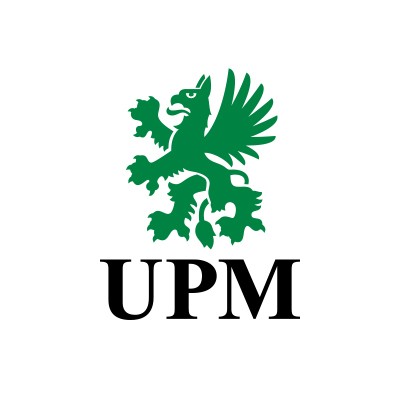UPM-Kymmene Corporation's Strategic Share Buybacks: A Financial Insight
March 26, 2025, 4:30 am
In the world of finance, share buybacks are like a double-edged sword. They can boost stock prices and signal confidence, but they also raise questions about a company's long-term strategy. UPM-Kymmene Corporation, a Finnish forest industry giant, recently made headlines with two significant share repurchase announcements. These moves, executed on March 24 and March 25, 2025, reveal much about the company's financial health and market positioning.
On March 24, UPM-Kymmene Corporation repurchased 200,000 shares at an average price of €26.2821. The total cost? A hefty €5,256,420. Just a day later, on March 25, the company bought back another 170,000 shares, this time at an average price of €26.3195, totaling €4,474,315. These transactions are not mere numbers; they reflect a strategic decision to invest in its own equity.
As of March 25, UPM-Kymmene now holds a total of 4,211,653 shares. This is a significant increase from the previous total of 4,041,653 shares. Such moves often indicate that a company believes its stock is undervalued. By buying back shares, UPM-Kymmene signals to the market that it has faith in its future prospects.
The timing of these buybacks is crucial. The market is a fickle beast, and companies must navigate its waves carefully. UPM-Kymmene's decision to repurchase shares during this period suggests a calculated risk. It reflects a belief that the current stock price does not accurately represent the company's intrinsic value.
Moreover, these buybacks comply with strict regulations set forth by the European Parliament and Council. Regulation No. 596/2014 and the Commission Delegated Regulation (EU) 2016/1052 govern such activities, ensuring transparency and fairness in the market. UPM-Kymmene's adherence to these regulations demonstrates its commitment to ethical business practices.
But why are share buybacks important? They can lead to an increase in earnings per share (EPS). Fewer shares outstanding mean that profits are distributed among a smaller pool, often leading to a higher EPS. This can attract investors, driving up the stock price. In a competitive market, perception is reality. A rising stock price can create a positive feedback loop, drawing in more investors.
However, the strategy is not without its critics. Some argue that companies should reinvest profits into growth opportunities rather than buying back shares. Critics view buybacks as a short-term fix, a way to inflate stock prices without addressing underlying business challenges. They question whether UPM-Kymmene is prioritizing immediate gains over long-term sustainability.
The forest industry is facing its own set of challenges. Climate change, sustainability concerns, and fluctuating demand for paper products are all factors that can impact UPM-Kymmene's future. The company must balance shareholder returns with the need for innovation and adaptation.
Investors are keenly aware of these dynamics. They want to see not just short-term gains but also a clear vision for the future. UPM-Kymmene's recent buybacks may provide a temporary boost, but the company must also demonstrate its ability to navigate the evolving landscape of the forest industry.
In addition to the financial implications, there is a psychological aspect to share buybacks. They can instill confidence among investors. When a company buys back its shares, it sends a message: "We believe in our future." This can help stabilize stock prices during turbulent times.
The recent buybacks by UPM-Kymmene could be seen as a strategic move to bolster investor confidence. In a market that often reacts to sentiment, this could prove beneficial. However, the company must also focus on delivering solid financial results and innovative solutions to ensure long-term success.
As UPM-Kymmene continues to navigate the complexities of the market, its share buybacks will be closely watched. Investors will be looking for signs of growth, innovation, and sustainability. The company must balance immediate shareholder returns with a commitment to long-term strategies.
In conclusion, UPM-Kymmene Corporation's recent share repurchase activities reflect a strategic decision in a complex financial landscape. While these buybacks can boost stock prices and signal confidence, they also raise questions about the company's long-term vision. As the forest industry faces various challenges, UPM-Kymmene must ensure that it balances short-term gains with sustainable growth. The road ahead is fraught with challenges, but with careful navigation, UPM-Kymmene can emerge stronger and more resilient.
On March 24, UPM-Kymmene Corporation repurchased 200,000 shares at an average price of €26.2821. The total cost? A hefty €5,256,420. Just a day later, on March 25, the company bought back another 170,000 shares, this time at an average price of €26.3195, totaling €4,474,315. These transactions are not mere numbers; they reflect a strategic decision to invest in its own equity.
As of March 25, UPM-Kymmene now holds a total of 4,211,653 shares. This is a significant increase from the previous total of 4,041,653 shares. Such moves often indicate that a company believes its stock is undervalued. By buying back shares, UPM-Kymmene signals to the market that it has faith in its future prospects.
The timing of these buybacks is crucial. The market is a fickle beast, and companies must navigate its waves carefully. UPM-Kymmene's decision to repurchase shares during this period suggests a calculated risk. It reflects a belief that the current stock price does not accurately represent the company's intrinsic value.
Moreover, these buybacks comply with strict regulations set forth by the European Parliament and Council. Regulation No. 596/2014 and the Commission Delegated Regulation (EU) 2016/1052 govern such activities, ensuring transparency and fairness in the market. UPM-Kymmene's adherence to these regulations demonstrates its commitment to ethical business practices.
But why are share buybacks important? They can lead to an increase in earnings per share (EPS). Fewer shares outstanding mean that profits are distributed among a smaller pool, often leading to a higher EPS. This can attract investors, driving up the stock price. In a competitive market, perception is reality. A rising stock price can create a positive feedback loop, drawing in more investors.
However, the strategy is not without its critics. Some argue that companies should reinvest profits into growth opportunities rather than buying back shares. Critics view buybacks as a short-term fix, a way to inflate stock prices without addressing underlying business challenges. They question whether UPM-Kymmene is prioritizing immediate gains over long-term sustainability.
The forest industry is facing its own set of challenges. Climate change, sustainability concerns, and fluctuating demand for paper products are all factors that can impact UPM-Kymmene's future. The company must balance shareholder returns with the need for innovation and adaptation.
Investors are keenly aware of these dynamics. They want to see not just short-term gains but also a clear vision for the future. UPM-Kymmene's recent buybacks may provide a temporary boost, but the company must also demonstrate its ability to navigate the evolving landscape of the forest industry.
In addition to the financial implications, there is a psychological aspect to share buybacks. They can instill confidence among investors. When a company buys back its shares, it sends a message: "We believe in our future." This can help stabilize stock prices during turbulent times.
The recent buybacks by UPM-Kymmene could be seen as a strategic move to bolster investor confidence. In a market that often reacts to sentiment, this could prove beneficial. However, the company must also focus on delivering solid financial results and innovative solutions to ensure long-term success.
As UPM-Kymmene continues to navigate the complexities of the market, its share buybacks will be closely watched. Investors will be looking for signs of growth, innovation, and sustainability. The company must balance immediate shareholder returns with a commitment to long-term strategies.
In conclusion, UPM-Kymmene Corporation's recent share repurchase activities reflect a strategic decision in a complex financial landscape. While these buybacks can boost stock prices and signal confidence, they also raise questions about the company's long-term vision. As the forest industry faces various challenges, UPM-Kymmene must ensure that it balances short-term gains with sustainable growth. The road ahead is fraught with challenges, but with careful navigation, UPM-Kymmene can emerge stronger and more resilient.

